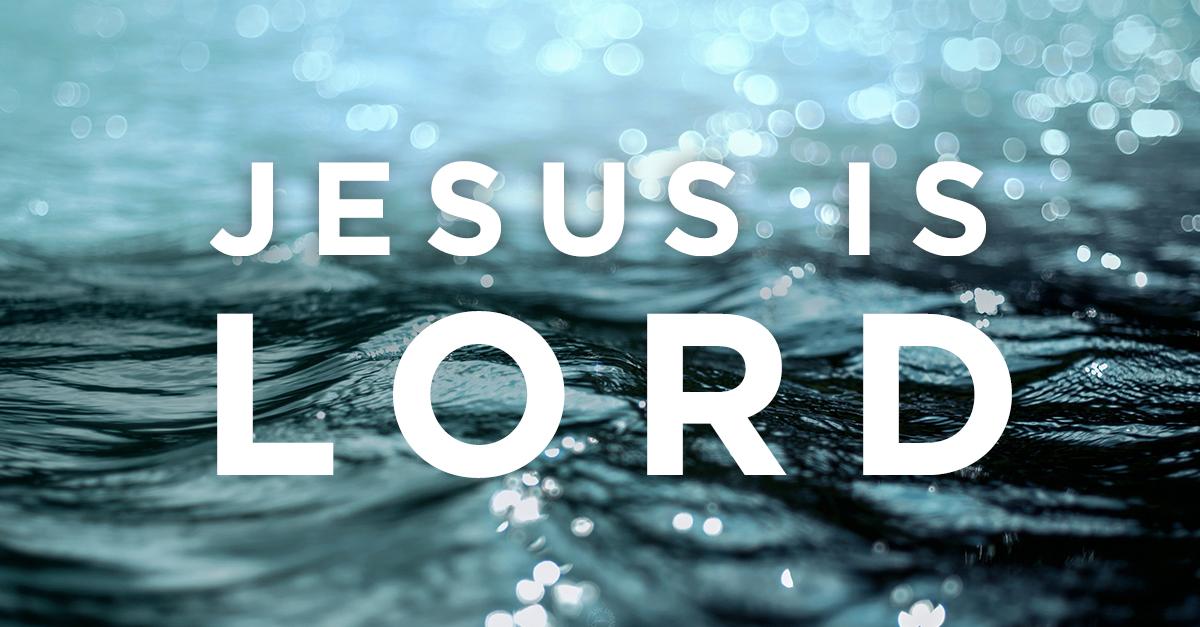Saying ‘Jesus is Lord’ Today

We gathered in a small group and a lady in the group, who is a new friend of ours, stated her desire to be baptized. I was excited! The grace of Jesus had captured her, and our group was happy. This was a wonderfully momentous decision for her.
Then, as the group meeting progressed, we had to look at a few hard teachings from the Bible. These teachings are particularly challenging for our Western Culture, because it has convinced most of us of a different point of view than the one taught in the Bible.
“It just seems unloving to not accept these behaviors,” she said. “I have a real problem with this other teaching. I have a lot of friends who live contrary to these things, and they are great people.”
By the end of our discussion, she had decided to delay her baptism.
“I need to think more about my baptism in light of these teachings,” she said, and I was happy for her.
The Lordship of Jesus
“Jesus is Lord,” is the core statement of faith in the New Testament (Acts 2:36; Romans 10:9). When I say that “Jesus is my Lord,” I am saying a great deal, including my decision to surrender to Jesus as my Sovereign ruler and leader—and that I will follow him, as his submissive servant, in all of life (2 Corinthians 4:5; Mark 8:34-35).
It is easy to say ‘Jesus is Lord’ and not really mean it. That is why Jesus himself said, “Not everyone who calls me ‘Lord, Lord’ will enter the kingdom of heaven, but only he who does the will of my father who is in heaven” (Matt. 7:21). If we want to authentically call Jesus ‘Lord’, we must plan to follow him in everything he teaches. If not, we shouldn’t say ‘Jesus is Lord.’
Saying It Today
We live in a unique time. The non-Jesus culture of the West is getting stronger all the time. Truth is blurry, interpretations are flexible, alternative opinions are rampant. We can easily pick the parts of the Bible we like and reject parts we do not like. After all, why be rigid and intolerant?
When we accept the Lordship of Jesus, we are affirming that Jesus…
- Created the universe,
- Created the laws of physics,
- Created the laws of right and wrong,
- Created you, me, and everything,
- Is the definer of all, and
- He gives value and definition to life in the Bible and his Word.
Jesus is Lord and we are created subjects, derived from him. He defines human life; we do not.
We can either learn to live in submission to our creator and redeemer—or we can try to live in submission to the ideals of our human-made culture. If we follow Jesus’ teaching in the Bible, we will live in submission. If we prefer the ideals of our human-made culture, we will live in rebellion. It is that simple.
Either Jesus is Lord—or he is not.
I am glad that my friend delayed her decision to be baptized. She needs to understand what the Bible really teaches and what it means when we say ‘Jesus is Lord.’ Then she must decide whether or not she truly and genuinely wants to make Jesus the ‘Lord’ of her life.
It is the defining decision of a biblical disciple. It’s the biggest decision she—and we—will ever make.
Bobby Harrington is the Executive Director of Discipleship.org, a national platform, conference, and ministry that advocates for Jesus’ style of disciple making. He is the founding and lead pastor of Harpeth Christian Church (by the Harpeth River, just outside of Nashville, TN). He has a Doctor of Ministry degree in consulting and has spent years as a coach to church planters and senior pastors. He is the author of several books on discipleship, including DiscipleShift (with Jim Putman and Robert Coleman) and The Disciple Maker’s Handbook (with Josh Patrick).
Image credit: Unsplash.com






Bobby, thank you for your willingness to take a bold, unpopular stand on the incontrovertible teachings of Jesus about what it means to make him the Lord of our lives. Like your friend, who was eager to be baptized until she learned that following Jesus means to believe, practice, and propagate his increasingly unpopular teachings about sin and righteousness, many in the first century crowds who believed in Jesus also reconsidered their decision to follow him after hearing his radical teachings (John 6:2, 60, 66). When you say “I am glad my friend delayed her decision to be baptized”, I think you echo the sentiments of Jesus, who demonstrated time and again in the gospels that he would rather have a few true disciples follow him than a large number of nominal believers. Keep up the great work, brother.